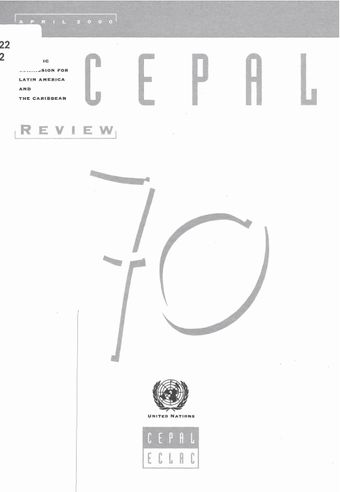-
How domestic violence came to be viewed as a public issue and policy object
- Source: CEPAL Review, Volume 2000, Issue 70, May 2000, p. 137 - 150
- Spanish
-
- 31 May 2000
Abstract
This article analyses the process whereby domestic violence in Chile became a subject of open discussion and a public issue included in the institutional agenda of the Executive and the Legislature, giving rise to preventive programmes against such violence and public services for aiding its victims, together with the adoption of a law against intra-family violence in 1994. The analysis highlights the dynamic and complex nature of the process, whose course and results were not and could not be determined a priori. Public issues do not exist in their own right, as purely objective phenomena, but are constructed by actors who operate in different settings, exchanging and confronting discourses based on various frames of interpretation. Several different phases may be distinguished in the process, depending on the features and opportunities offered by the political and institutional system, the different types of actors involved, their organizational resources, the structure of the links they establish with each other, and the frame of interpretation that guides what the actors do. Seen from this standpoint, the emergence of cases of violence as a public issue is at the same time the story of the establishment of women as valid social subjects, their organizations, their strategies for mobilizing the issue in different public contexts, and the spread of new types of discourse and proposals on gender-related matters.





